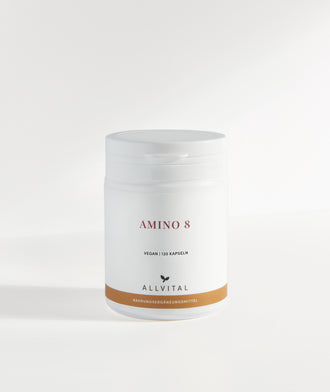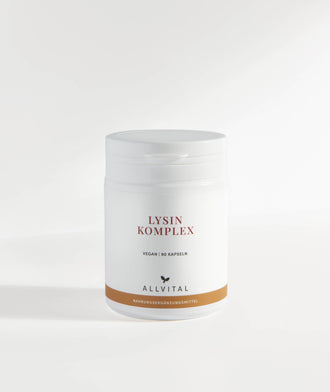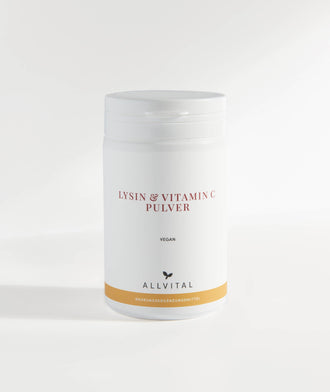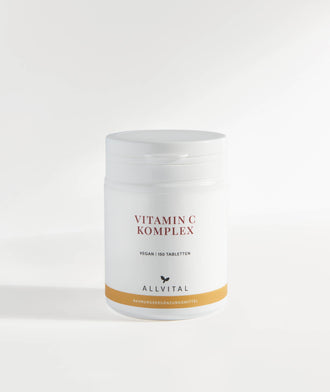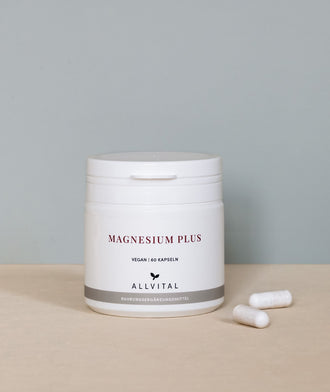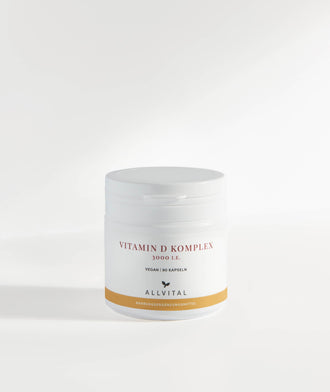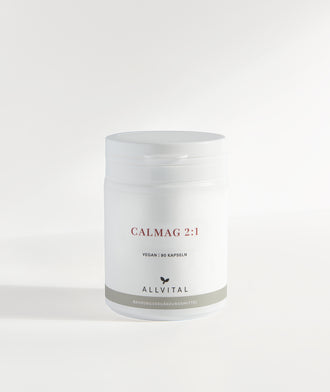
Micronutrients for healthy and strong muscles
If you lead an active lifestyle, your body requires more than just macronutrients like proteins, carbohydrates, and fats. You also have an increased need for specific micronutrients.
Why should I take micronutrients for my muscles?
There are several reasons why supporting your muscles with high-quality supplements can be beneficial—not just for athletes but for anyone looking to maintain a healthy musculoskeletal system:
- Loss of micronutrients through sweating: When you exercise, you don’t just lose fluids; you also excrete essential minerals like magnesium, sodium, and potassium through sweat. These minerals are vital for muscle contraction and fluid balance.
- Muscle activity depletes micronutrients: Building and maintaining muscle tissue requires a variety of amino acids, vitamins, minerals, and trace elements.
- Better recovery and reduced muscle soreness: Intense workouts cause tiny micro-injuries in the muscle fibers, often leading to muscle soreness. Specific micronutrients support tissue repair and help reduce recovery time.
- Enhanced performance and muscle growth: When your body is optimally supplied with essential nutrients, you can build muscle more efficiently, improve your performance, and reduce the risk of injuries by maintaining strong, healthy muscle tissue.
Below, we introduce some of the most important micronutrients for muscle health and highlight Allvital’s premium products that can support your fitness goals.
Amino acids: Building blocks of muscles
Alongside a protein-rich diet, supplementing with amino acids can help meet your body’s protein requirements, supporting muscle growth, recovery, and the surrounding connective tissue.
One key advantage of amino acid supplements is their high bioavailability—meaning they are easily absorbed and rapidly utilized by the body. Unlike complex proteins that require extensive digestion to be broken down into their amino acid components, free-form amino acids can be readily taken up by the cells.
In contrast, dietary proteins—especially from plant sources—can be harder to digest and may burden the digestive system. Excessive consumption of poorly digestible proteins can lead to fermentation processes in the gut or even inflammatory responses in the intestinal lining.
To support protein intake while easing digestion, it’s essential to choose high-quality protein sources. In addition to nutrient-dense foods like grass-fed meat, eggs, and fish, supplements containing essential amino acids or hydrolyzed collagen can be a great way to nourish your body.
Allvital’s Amino 8 provides all eight essential amino acids in a perfectly balanced ratio, making it an excellent choice for daily use. Since the body cannot produce essential amino acids on its own, they must be obtained through diet.
Additionally, we recommend Lysin Complex and Lysin & Vitamin C Powder. L-lysine is an essential amino acid that plays a crucial role in muscle and connective tissue formation. Lysin Complex also contains L-proline, another important building block for connective tissue, along with taurine, an amino sulfonic acid.
Lysin & Vitamin C Powder combines lysine with vitamin C, enhancing their mutual benefits. The presence of vitamin C also improves lysine absorption. Learn more about the importance of vitamin C in the next section.
Vitamin C: Collagen formation and antioxidant protection
Vitamin C plays numerous essential roles in the human body. One of its most important functions is its role as a cofactor in collagen synthesis. Collagen is the primary structural protein in connective tissue, found in tendons, ligaments, fascia, and bones. It is also crucial for muscle health, providing stability, elasticity, and resilience. A well-functioning connective tissue system helps muscles work efficiently and recover quickly after intense exercise.
Beyond collagen formation, vitamin C supports muscle health in several other ways:
- Protecting muscle cells from oxidative stress: During exercise, increased oxygen intake leads to a higher production of free radicals, which can damage muscle cells. As a powerful antioxidant, vitamin C helps neutralize these harmful molecules.
- Enhancing iron absorption in the gut: Iron is essential for oxygen transport in the blood and energy metabolism in muscles. Vitamin C improves the absorption of plant-based iron from food, indirectly supporting better oxygen supply and reducing muscle fatigue.
For optimal vitamin C intake, we recommend our Vitamin C Complex, which contains vitamin C in four natural forms. It also includes a blend of antioxidant-rich plant extracts, such as green tea extract, grape seed extract, citrus bioflavonoids, and rosehip, providing comprehensive antioxidant protection.
For more in-depth insights into the many benefits of vitamin C, read our blog article: "Vitamin C: a multi talent for our health."
Magnesium: Muscle relaxation and performance
Magnesium is one of the most important minerals for muscle function, playing a central role in both muscle contraction and relaxation. A magnesium deficiency can lead to muscle cramps, tremors, or faster fatigue. Athletes, in particular, have an increased need for this mineral due to higher consumption and loss through sweat.
In addition to its role in muscle function, magnesium is also vital for energy production, bone health, and normal nervous system function.
For optimal magnesium intake, our Magnesium Plus supplement provides a highly bioavailable formula that effectively supports the body's magnesium needs. It also includes vitamin B6 to enhance cellular magnesium absorption.
To learn more about the significance of magnesium for your health, check out our blog article: "Magnesium – a key mineral for your health."
Vitamin D and calcium: Support for muscles and bones
Vitamin D and calcium are essential for strong muscles and healthy bones. Calcium plays a key role in muscle contraction, while vitamin D regulates calcium absorption in the intestines and supports overall muscle function.
For optimal intake of these vital nutrients, Allvital offers high-quality supplements, including the high-dose Vitamin D Complex, which provides 3,000 IU of vitamin D per capsule, as well as Vitamin D3 + K2 and CalMag 2:1. The CalMag 2:1 formula contains calcium and magnesium in a balanced ratio to support both muscle and bone health.
Learn more about the many benefits of vitamin D in our article: "Stay fit and healthy through the winter with vitamin D."
Other micronutrients for healthy muscles
Additional micronutrients that can support muscle function include:
- Omega-3 fatty acids: These essential fatty acids are key components of cell membranes. Healthy cell membranes are crucial for nutrient absorption and the elimination of metabolic waste, which is also essential for proper muscle function.
- B vitamins: This group of vitamins plays a crucial role in energy metabolism, nerve function, and muscle health. Maintaining optimal B-vitamin levels is particularly important for active individuals.
- Iron: As a key component of hemoglobin, iron is essential for oxygen transport throughout the body. In muscles, the iron-containing molecule myoglobin stores oxygen. Only with sufficient oxygen supply can muscles perform endurance activities and recover efficiently.
- MSM (methylsulfonylmethane): This organic sulfur compound is a valuable source of sulfur, a mineral essential for the formation of connective tissue, tendons, and muscle fascia.
Conclusion: Why micronutrients matter for muscle health
An optimal supply of micronutrients is crucial for strong, high-performing, and healthy muscles. In addition to a balanced diet, high-quality supplements can help meet individual nutritional needs, promote recovery, and support muscle growth.


